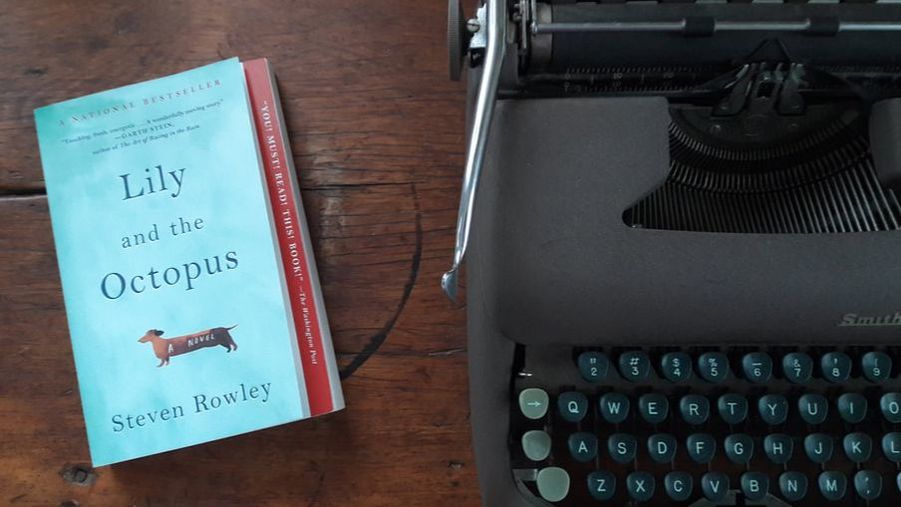Musings |
“She was twelve and a half in actual years, which is eighty-seven in dog years .” Reading Steven Rowley’s debut novel, Lily and the Octopus, was an emotional experience. I started out a skeptic, then fell in love with the story of Lily, a twelve-year-old dachshund, and her neurotic and endearing human, Ted, before rolling my eyes and, finally, dissolving into tears and forcing my cat to endure an extra long snuggle. The book was initially a short story, written not for publication but as a way for Rowley to process his grief six months after he lost his own dachshund to cancer. His raw emotions give the novel much of its strength. Through Ted, Rowley captures the special bond between an animal and her human. The love we have for our pets, and the kindness, compassion and love they show us is uncomplicated. As a result, the pain of losing a beloved pet is a concentrated ache, undiluted by the more tangled emotions we feel with human love. And it is this concentrated pain that Rowley captures so perfectly. But he also captures the emotional experiences of caring for a pet, from the guilt we feel when we accidentally cause our pet pain or discomfort to the terms of endearment we use when we speak with our pets. Like Lily, my cat Dodger has several nicknames: Moosh, Monster, Boo, Bear, Kitten-Face, Meatloaf, Bug. The list goes on. Rowley’s portrait of Lily is both charming and genuine. Describing Lily’s joy while running at the beach, he writes:
Rowley also captures the conversations between Ted and Lily. And just as Ted converses with Lily, who responds in a flurry of all-caps and exclamation points, he also engages, reluctantly, with the snarky and scheming octopus, a cranial tumor above Lily’s eye. As Lily’s health declines, and she starts to experience seizures and eventually loses her eyesight, we learn the extent to which Ted has used his relationship with Lily as an escape. Their nightly dates have taken the place of Ted’s friendships, romantic relationships and his relationships with his family. And when the time he spends with Lily is not enough to keep his loneliness at bay, he turns to drugs and alcohol. So it is understandable that his fear of losing Lily takes on epic proportions. And this is where the book takes a turn towards magical realism. Rowley moves beyond the imagined conversations between Ted and Lily or Ted and the octopus, to a fantastic story that felt so out of place that I immediately rolled my eyes. Suddenly Ted and a spry Lily are alone on a commercial fishing boat. Their stated purpose is to hunt and destroy the octopus that is threatening Lily’s life. The story continues along these lines until, finally, Ted wakes up and realizes it was all a dream. He also realizes that Lily’s death is imminent, and we are plunged back into reality as the story reaches the inevitable conclusion. For the most part, Lily and the Octopus is an unexpectedly beautiful book about the effect pets can have on our lives. But the foray into magical realism takes away from the touching and relatable story of Lily and her human. Perhaps it is because Rowley is a screenwriter that he took this detour? Whatever the reason, it diminished the overall power and poignancy of what was otherwise a heartwarming story. ★★★ Lily and the Octopus, a novel by Steven Rowley, published by Simon & Schuster Paperbacks, an imprint of Simon & Schuster, Inc., in 2016. This book review is presented as part of my personal challenge to read and write a thoughtful review of at least 30 books in 2018. To learn more about this challenge, the books I have selected, and my imperfect rating system, click here.
0 Comments
Leave a Reply. |
|
|
The Scribbler's Journal
|
Contact |



